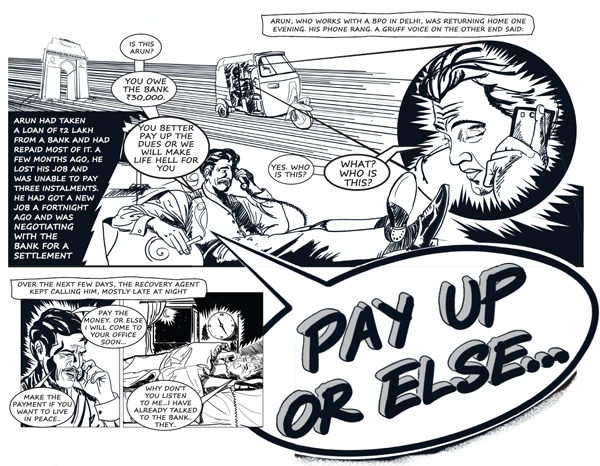
Narendra's BLOGS
Bank Bad Debts.& Role of Collection/ Recovery Agencies
Published: Dec 31st, 2020 11:35 amIn recent years, significant media and regulatory attention has been focused on the methods employed by recovery agencies in collection of bad debts. resulting in adverse publicity to banks engaging recovery agents. It is also reported that there is a rise in the number of complaints/ litigations against banks on the use of recovery agents. This backdrop and possibility of reputation risk not only for the banks concerned but also for the banking sector as a whole necessitated to employ only those recovery agents completing min.100 hrs. Training recommended by Indian Banks Association (IBA).
It is to be noted that collection function precedes recovery and includes repayments made by the borrower in due course of time without any reminder and initial process of reminder etc. In general parlance, recovery starts once the efforts of collection of dues has not borne fruit and the debt. has become overdue.
Thus, Debt. Recovery/ Collection agents are employed by Direct Selling/ Marketing Agencies or Debt. Collection Agencies who work for banks subject to certain terms and condition. Debt. Collection agencies are third-party businesses that collect dues/ post-dues and other receivable of banks in exchange for a Fee. DRAs charge the banks/ NBFCs for their services in one of two ways : (!) A Flat Fee and (2) A percentage of amount collected.
Most collection agencies use one of following three methods to collect debts/ dues viz.(1) Contact and follow up through telephone (2) Letters (3) Direct contact by visiting the debtors.
Before the debt recovery agent is given the job, bank begin their work by issuing normal reminders to the borrowers. However, it is seen that in the case of retail loans, the initial reminders could also begin from the DRA. Typically, collection agencies begin the collection process by sending a demand letter followed by phone calls. If these efforts do not result in the payment/ collection, it will be followed up and supplemented by visits to customers houses to more intensive methods. Direct contact is most useful in bringing pressure or turning up the heat on debtors who have been identified as those having no intention to pay their dues/ bill.
Besides sending out letters and making phone calls, some collection agencies also specialize in locating debtors who can no longer be reached at the address or phone number listed on their accounts. Certain collection agencies offer this ”Tracking” service. Debt. collection agencies act on behalf of banks to collect severely overdue accounts.
Regulatory requirements in debt. collection process are mandatory but may not automatically lead to full recovery. Success in recovery depends on compliance with the regulatory norms added with collection skills and strategy. This Soft skills and strategies includes Communication Skill, Listening Skill, Inter-personal Skill, Persuasive Skill, Negotiation Skill and dealing skill with difficult debtors.
CONCLUSION :
Mere regulatory compliance without collection skills and strategy may not result in recovery. Similarly, collection skills and strategy without regulatory compliance may vitiate recovery atmosphere in the long term.

Comments
Add Comment